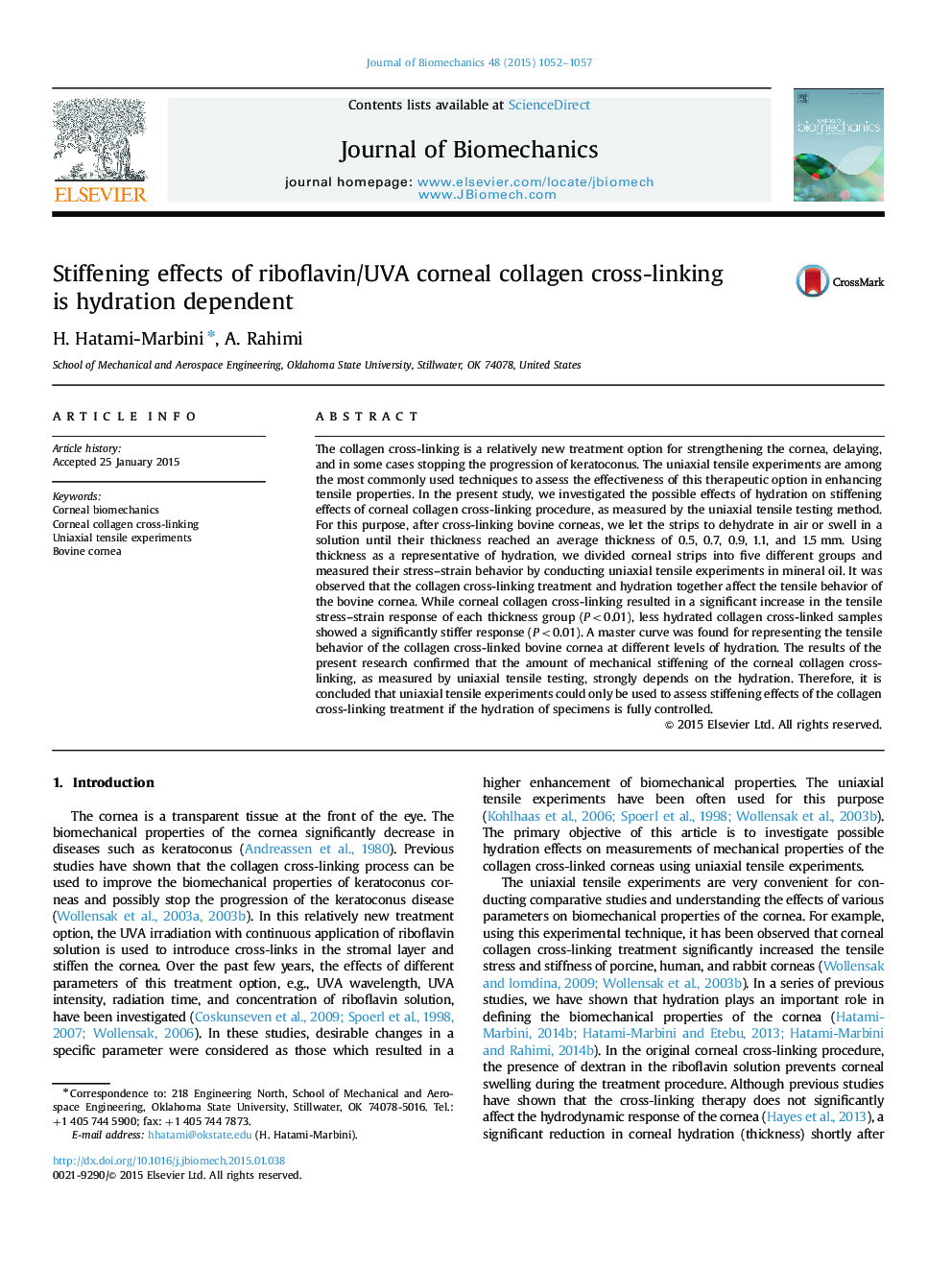| Article ID | Journal | Published Year | Pages | File Type |
|---|---|---|---|---|
| 871990 | Journal of Biomechanics | 2015 | 6 Pages |
The collagen cross-linking is a relatively new treatment option for strengthening the cornea, delaying, and in some cases stopping the progression of keratoconus. The uniaxial tensile experiments are among the most commonly used techniques to assess the effectiveness of this therapeutic option in enhancing tensile properties. In the present study, we investigated the possible effects of hydration on stiffening effects of corneal collagen cross-linking procedure, as measured by the uniaxial tensile testing method. For this purpose, after cross-linking bovine corneas, we let the strips to dehydrate in air or swell in a solution until their thickness reached an average thickness of 0.5, 0.7, 0.9, 1.1, and 1.5 mm. Using thickness as a representative of hydration, we divided corneal strips into five different groups and measured their stress–strain behavior by conducting uniaxial tensile experiments in mineral oil. It was observed that the collagen cross-linking treatment and hydration together affect the tensile behavior of the bovine cornea. While corneal collagen cross-linking resulted in a significant increase in the tensile stress–strain response of each thickness group (P<0.01), less hydrated collagen cross-linked samples showed a significantly stiffer response (P<0.01). A master curve was found for representing the tensile behavior of the collagen cross-linked bovine cornea at different levels of hydration. The results of the present research confirmed that the amount of mechanical stiffening of the corneal collagen cross-linking, as measured by uniaxial tensile testing, strongly depends on the hydration. Therefore, it is concluded that uniaxial tensile experiments could only be used to assess stiffening effects of the collagen cross-linking treatment if the hydration of specimens is fully controlled.
